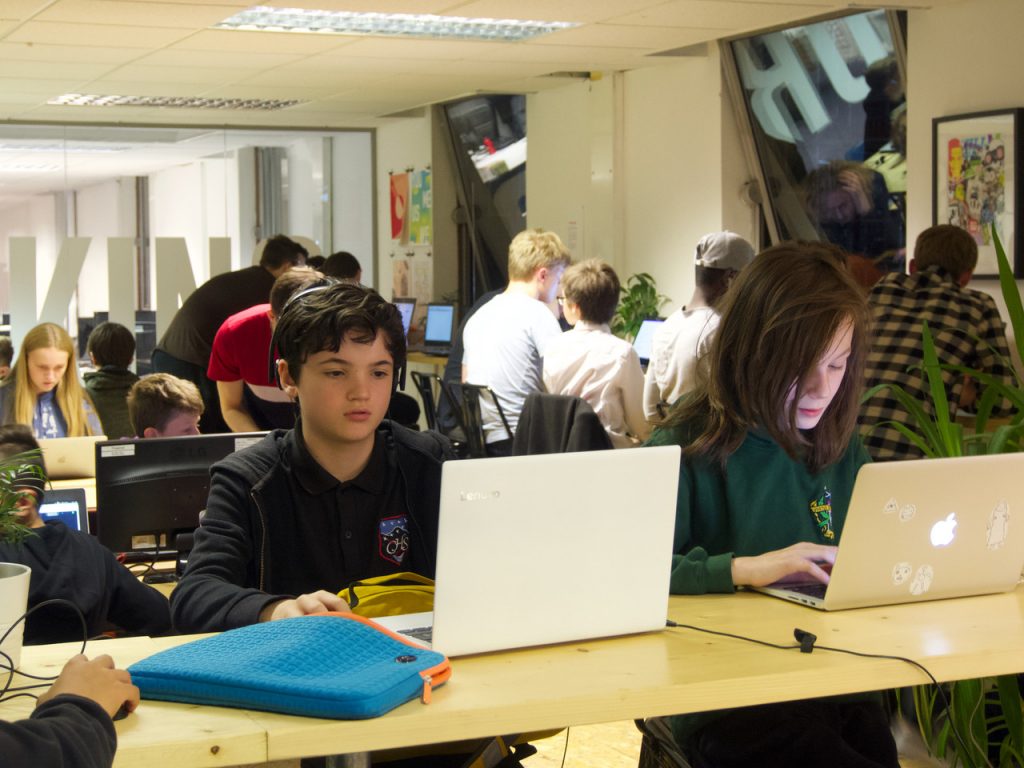A cloud-based platform that aims to help tackle the computing science crisis in Scottish schools is set for expansion thanks to a new funding boost.
EDINA – the centre for data and digital expertise based at Edinburgh University – has been awarded £26,400 by Education Scotland to develop and improve its computational notebook service, Noteable.
It is designed to support learning and teaching in computing science, data science and cybersecurity, both in and out of the classroom.
Noteable provides an “interactive text-book style format” for computing science teaching and learning, allowing students to access their own programming space in a web browser. Teachers can also use it to create and share coding assignments.
James Stix, service manager at EDINA, says the platform “can help with the computing science crisis in Scotland by making it more appealing to teachers and more attractive to teachers to access a coding environment”.
The service is easily accessible via Glow – the national digital portal which supports learning across the whole curriculum.
According to Guy Stevenson, business development manager at EDINA, this means teachers do not need to complete the “time-consuming” task of downloading various bits of “very specific software” and setting up labs for students.
He says: “You want to go into that classroom on the first day and say ‘here’s your username, password, here’s your problem, let’s get going straight away.'”
Noteable also promises to “remove barriers” to coding by allowing pupils to program from anywhere with an internet connection and web browser.
In addition, the online approach “supports equity of learning”, with all learners accessing the same version of a cloud-based platform.
The idea for the platform was born out of necessity at the University of Edinburgh a few years ago.
Stix says: “At the University of Edinburgh there was this need to find a way to enable easier ways for both students and teachers to do programming – and to do it online.
“There was this need for students to be able to just log into a computer either at the university library, for example, or just on their own device, and have a place that was safe and secure, and that was based on a University of Edinburgh infrastructure, so everything was saved on the University of Edinburgh and it was safe and also GDPR [General Data Protection Regulation] friendly.
“And so all these combinations of needs landed upon this new technology.”
The Noteable software is now used in various universities and colleges in the UK.
The EDINA team realised that if this was an issue in higher education, then the same probably applied to secondary schools. At the same time, Stix says, they were becoming “increasingly aware of the scarcity of computing science teachers [in schools] and that this was a worsening problem.”
Scotland is facing a major shortage of computing science teachers, meaning many schools no longer offer the subject. The most recent teacher census shows the number of computing science teachers in Scotland has dropped by almost a quarter over the past 13 years, plummeting from 766 in 2008 to 595 in 2020.
This spurred on a decision to partner with Education Scotland and work on integrating the Noteable service into schools and developing training and learning resources to use on the platform.
But how does it work? Noteable combines programming languages in one place, Stix explains, and builds on what’s already familiar to people – such as Word documents and Excel spreadsheets.
This means it is much less “intimidating” for both teachers and students who are new to coding.
Stix says: “Really, it’s like a Word document where you can do text for reading, learning, explaining and writing up a question – but then immediately below that you have some code, and then you can run that code right there.
“This combination of technologies not only makes coding easier, but also makes it easier to actually enter it and started working with it.”
On top of this, the platform offers teachers more flexibility. Practitioners can “add their own type of explanations and their own type of content”. They can also copy and paste from the curriculum, or simply use one of the ready-to-go resources on the platform.
The EDINA team are now running webinars and undertaking training to support teachers use Noteable.
They will also develop and deliver professional learning for computing science practitioners, demonstrating the platform’s features and functions.
In a second phase of work, EDINA will deliver a web development environment within Noteable to support the learning and teaching of web development skills including HTML, CSS, Javascript and Linux.
This will broaden the relevance of Noteable to other parts of the curriculum, including the cybersecurity.
Gayle Gorman, chief executive of Education Scotland said: “We are delighted to award funding to the University of Edinburgh for projects which aim to help learners to build their digital skills beyond the classroom.
“We welcome the opportunity to highlight the importance of digital and particularly computing science for young people all year round. Education Scotland’s digital officers provide a range of professional development opportunities to help practitioners explore how they can support young people from the early level to develop a range of digital skills and to navigate their online life, the risks they may face, and how to overcome these and develop resilience. We will continue to work to ensure that we are providing the support practitioners need to complement the work they are already doing locally.”
Gavin Ian McLachlan, vice-principal and chief information officer, and librarian at the University of Edinburgh, said: “We are delighted to be working with Education Scotland on these exciting developments.
“Supporting all Scottish pupils to gain data and digital skills, that are already critical for their future, is an important commitment for the University of Edinburgh, and contributes to our established work with schools in Edinburgh and South East Scotland through the City Region Deal.”
